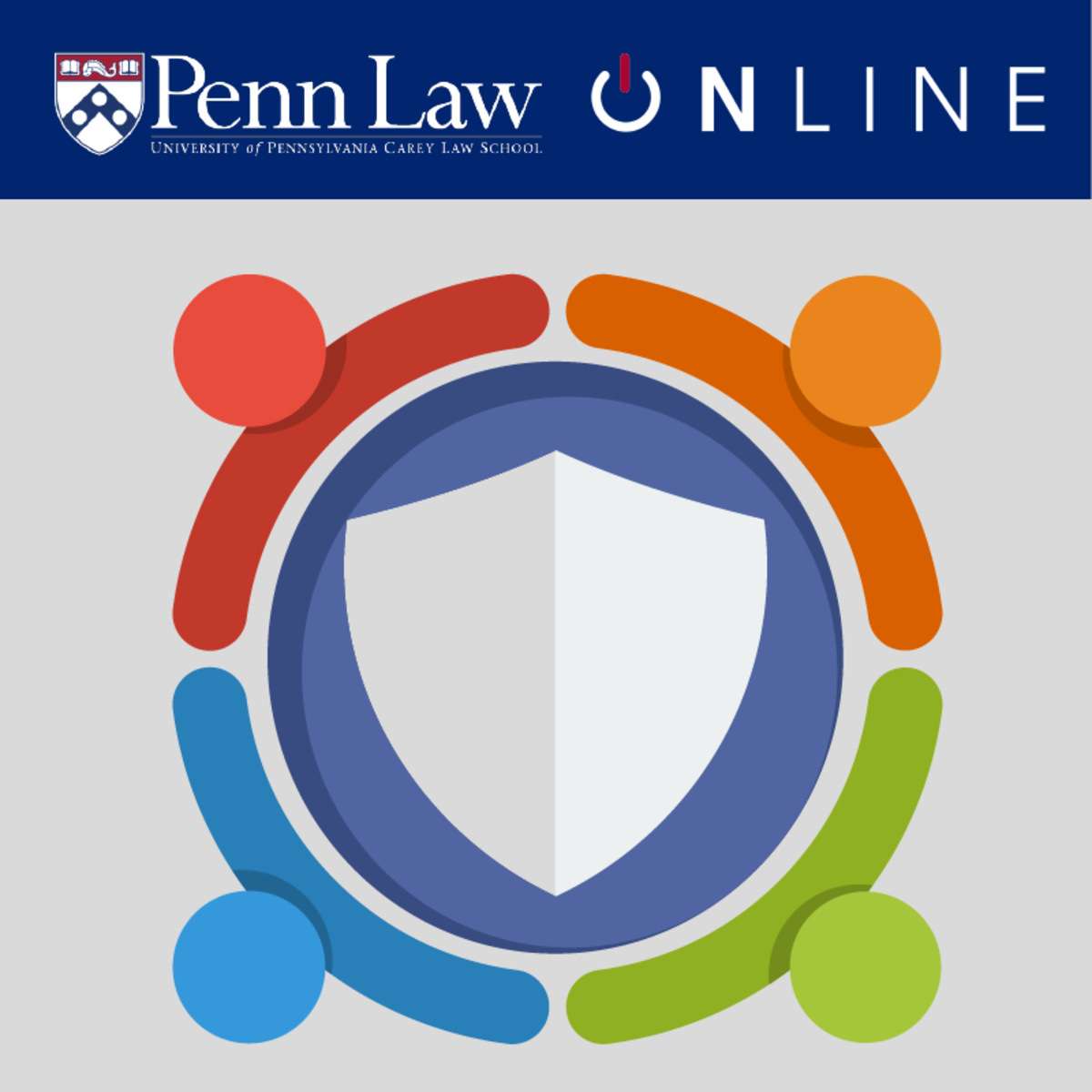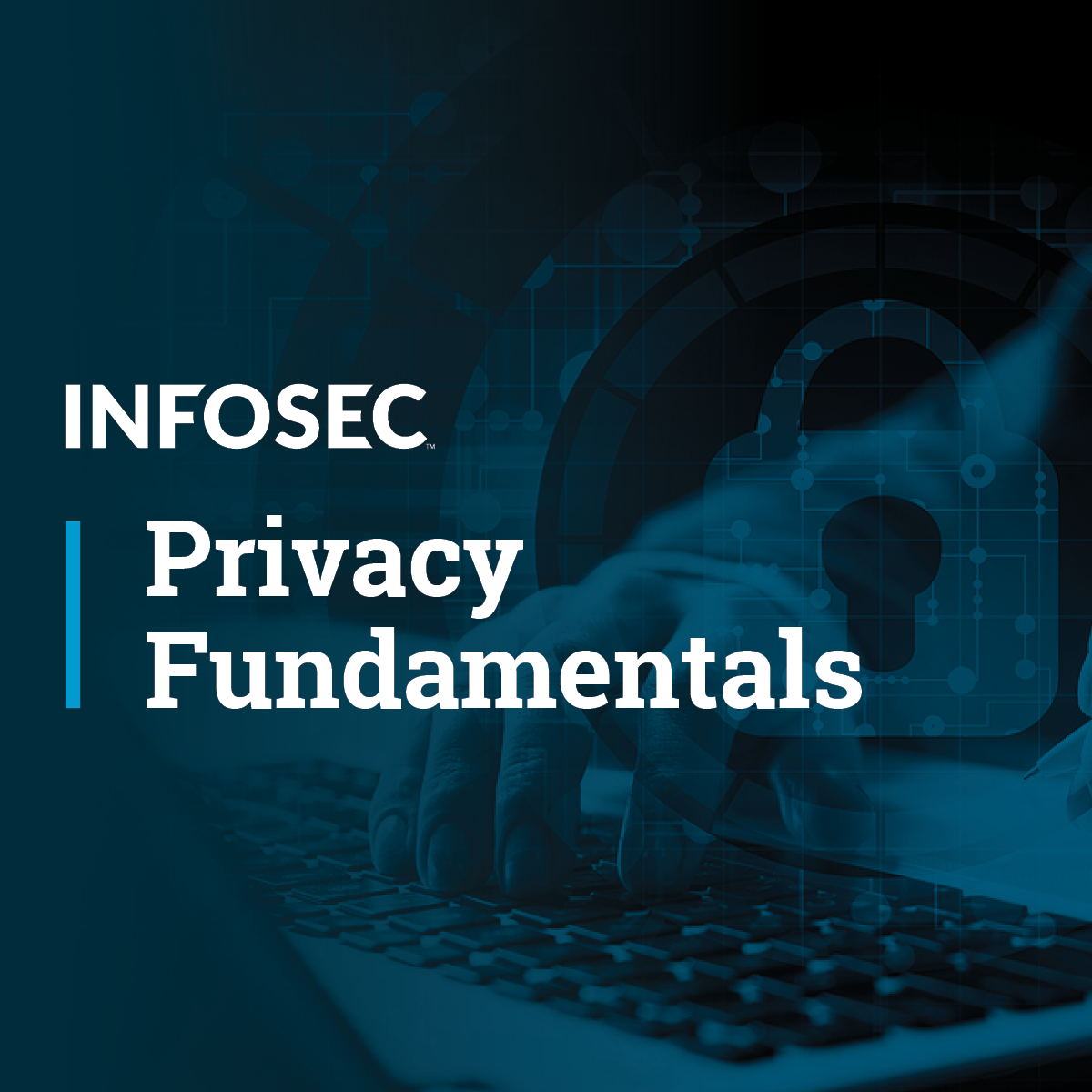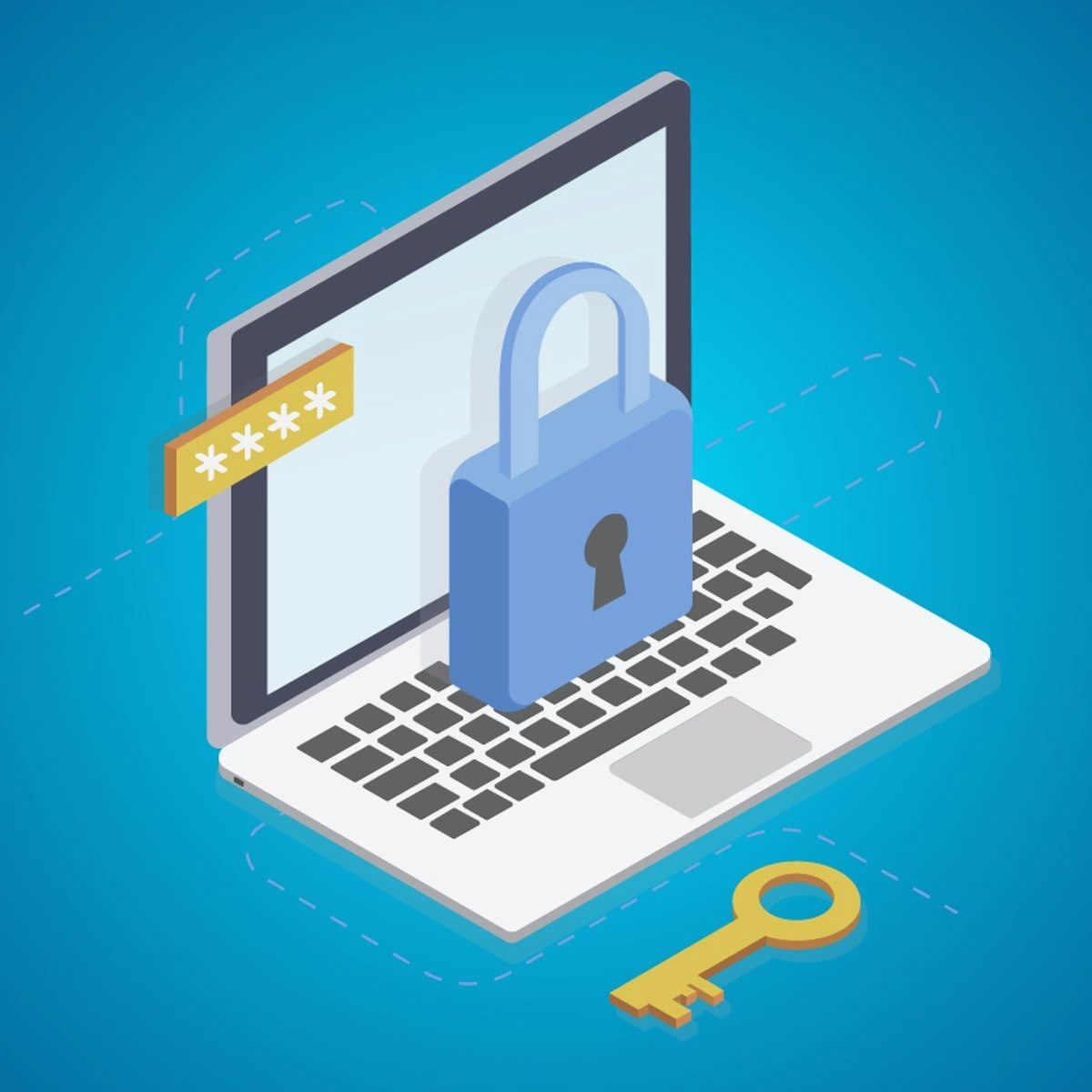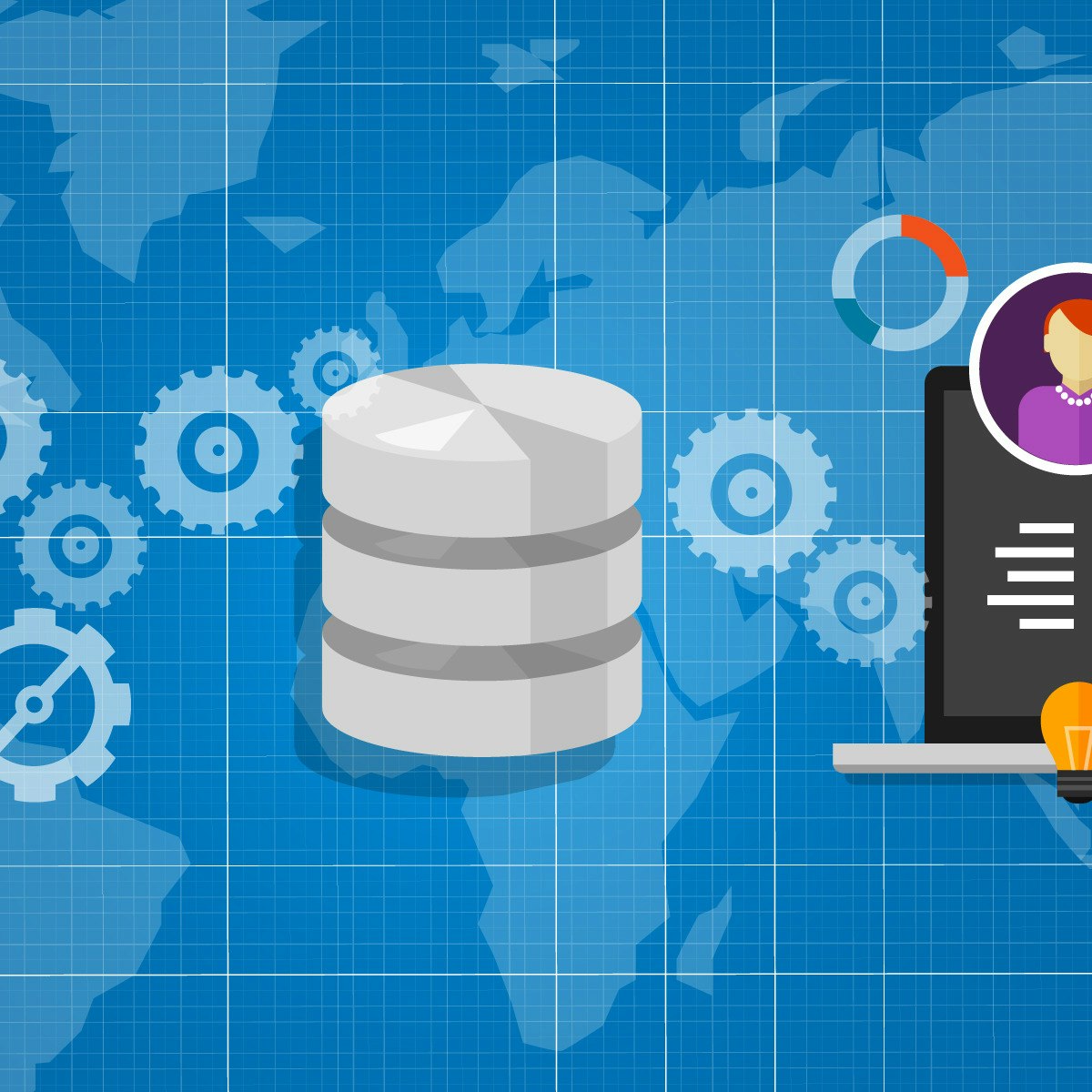Data Privacy Analyst
Data Privacy Analyst: A Comprehensive Career Guide
A Data Privacy Analyst plays a crucial role in helping organizations manage and protect sensitive data in an increasingly digital world. This role involves ensuring that company practices comply with various data privacy regulations and that individuals' data rights are respected. As businesses collect vast amounts of personal information, the need for dedicated professionals to navigate the complex landscape of data privacy has become paramount.
Working as a Data Privacy Analyst can be both engaging and exciting. It offers the opportunity to be at the forefront of a rapidly evolving field, dealing with cutting-edge technologies and emerging legal frameworks. Analysts often find themselves solving complex puzzles, balancing the data needs of a business with the privacy rights of individuals. Furthermore, the global nature of data flows means analysts often work on international issues, making the role dynamic and intellectually stimulating.
Introduction to Data Privacy Analyst
This section delves into the specifics of what a Data Privacy Analyst does, the historical context of the profession, and its importance in today's global economy.
Defining the Data Privacy Analyst Role
A Data Privacy Analyst is a professional responsible for ensuring an organization's adherence to data privacy laws and regulations. Their work involves developing, implementing, and maintaining policies and procedures designed to protect personal and sensitive data. They assess privacy risks, monitor compliance, and respond to data privacy-related incidents or inquiries. This role is critical in building trust with customers and stakeholders by demonstrating a commitment to data protection.
The scope of a Data Privacy Analyst's duties can be broad, encompassing tasks such as conducting privacy impact assessments, training employees on privacy best practices, and staying updated on changes in privacy legislation. They often work closely with legal, IT, and cybersecurity teams to create a cohesive data protection strategy. The ultimate goal is to safeguard information while enabling the organization to achieve its objectives responsibly.
In essence, these analysts act as guardians of personal information within an organization. They help bridge the gap between legal requirements and technical implementation, ensuring that data is handled ethically and lawfully throughout its lifecycle, from collection to disposal.
The Evolution of Data Privacy
The concept of data privacy is not new, but its prominence has surged with the advent of digital technologies and the internet. Early privacy concerns often centered on government surveillance and physical records. However, the mass collection and processing of personal data by commercial entities in the late 20th and early 21st centuries brought new challenges and societal demands for stronger protections.
Landmark regulations like the EU's General Data Protection Regulation (GDPR) in 2018 and the California Consumer Privacy Act (CCPA) in 2020 have significantly shaped the field. These laws established comprehensive frameworks for data protection, granting individuals more control over their personal information and imposing strict obligations on organizations. The discipline has evolved from a niche legal concern to a mainstream business imperative.
This evolution reflects a growing societal awareness of the value and sensitivity of personal data. As data breaches and privacy scandals have made headlines, the public and regulators alike have pushed for greater accountability, leading to the formalization of roles like the Data Privacy Analyst. The field continues to adapt to new technologies such as artificial intelligence and the Internet of Things (IoT), which present novel privacy considerations.
To understand the foundational principles guiding modern data privacy, exploring resources on data privacy laws and frameworks is beneficial. These often detail the rights of individuals and the responsibilities of organizations.
Global Relevance in the Digital Economy
In today's interconnected digital economy, data flows seamlessly across borders, making data privacy a global concern. Businesses, regardless of their physical location, often process data from individuals in multiple jurisdictions, each with its own set of privacy laws. This complexity underscores the critical need for Data Privacy Analysts who can navigate diverse regulatory landscapes.
The role is vital for international trade and digital services. Companies that can demonstrate robust privacy practices gain a competitive advantage, building trust with global consumers and partners. Conversely, failure to comply with international privacy standards can result in severe financial penalties, reputational damage, and loss of market access. According to a report by Gartner, a leading research and advisory company, privacy regulations are expanding worldwide, with an increasing number of countries enacting comprehensive data protection laws.
Data Privacy Analysts help organizations understand and meet these varied global requirements, ensuring that data handling practices are consistent and compliant wherever data is processed. Their expertise is essential for businesses aiming to operate ethically and successfully on the world stage, making this career path increasingly relevant and in demand across numerous industries.
For those interested in the broader economic implications, exploring resources on the digital economy and international data governance can provide valuable context. You can often find relevant information on sites like the OECD's digital economy page.
Core Responsibilities and Daily Tasks
Understanding the day-to-day work of a Data Privacy Analyst provides a clearer picture of the role's demands and the skills required.
Ensuring Compliance with Privacy Regulations
A primary responsibility of a Data Privacy Analyst is to ensure the organization complies with applicable data privacy regulations. This involves staying abreast of laws like GDPR, CCPA, HIPAA (for healthcare data in the US), and others relevant to the organization's operations and geographic reach. Analysts translate these legal requirements into actionable policies and procedures.
Daily tasks might include reviewing data processing activities, updating privacy notices, and ensuring that data subject rights requests (such as access or deletion requests) are handled correctly and promptly. They may also work with product development teams to embed privacy-by-design principles into new products and services. This proactive approach helps prevent privacy violations before they occur.
Moreover, analysts often conduct regular audits and assessments to monitor ongoing compliance and identify areas for improvement. They document compliance efforts, prepare reports for management and regulatory authorities, and play a key role in fostering a culture of privacy within the organization. Understanding specific regulations is key, and courses focusing on these can be very helpful.
These courses can provide a solid understanding of crucial regulations and how to apply them.
Conducting Data Protection Impact Assessments (DPIAs)
Data Protection Impact Assessments (DPIAs) are a crucial tool for identifying and mitigating privacy risks associated with new projects, systems, or technologies that involve processing personal data. Data Privacy Analysts are often responsible for leading or contributing to these assessments. A DPIA systematically evaluates how a proposed activity might affect individuals' privacy and identifies measures to address potential negative impacts.
The process typically involves describing the data flows, assessing the necessity and proportionality of the processing, identifying potential risks to data subjects (e.g., unauthorized access, discrimination, loss of control over data), and determining safeguards to mitigate these risks. This might include technical measures like encryption, organizational measures like staff training, or legal measures like contractual clauses.
For instance, if a company plans to launch a new mobile application that collects location data, a Data Privacy Analyst would conduct a DPIA to understand what data is collected, how it's used, who has access, and the potential privacy implications for users. They would then recommend ways to minimize data collection, enhance security, and ensure transparency, thereby protecting users and ensuring compliance. This proactive risk management is a cornerstone of modern data privacy practices.
Managing Incident Response and Breach Notifications
Despite best efforts, data breaches and privacy incidents can occur. Data Privacy Analysts play a critical role in an organization's incident response plan. This involves investigating potential breaches, assessing their scope and impact, and coordinating remedial actions to contain the incident and mitigate harm to affected individuals.
Once an incident is confirmed, the analyst helps determine whether regulatory notification is required. Many privacy laws, such as GDPR, mandate timely reporting of breaches to supervisory authorities and, in some cases, to the affected individuals. The analyst ensures these notifications are made correctly and within the stipulated deadlines, providing clear and accurate information about the breach and the steps being taken.
Beyond immediate response, analysts also contribute to post-incident analysis. This involves understanding the root cause of the breach, evaluating the effectiveness of the response, and identifying lessons learned to prevent future incidents. This continuous improvement cycle is vital for maintaining a strong data protection posture. Training in incident management and data security helps prepare for these challenging situations.
Courses that cover security breach management and broader data protection concepts can be invaluable.
Essential Skills and Certifications
To succeed as a Data Privacy Analyst, a combination of technical knowledge, understanding of legal frameworks, and strong soft skills is necessary. Certifications can also significantly enhance career prospects.
Key Technical Skills
While a Data Privacy Analyst role is not always deeply technical, a good understanding of certain technologies and concepts is crucial. Knowledge of data encryption methods (like AES and TLS) helps in assessing the security of data at rest and in transit. Familiarity with data anonymization and pseudonymization techniques is important for minimizing privacy risks when using data for analytics or research.
Understanding database structures, data flows, and network security fundamentals can also be beneficial. Analysts may need to work with IT teams to implement privacy-enhancing technologies (PETs) or to investigate data breaches, making technical literacy essential for effective collaboration. Some analysts may also use specialized privacy management software.
Furthermore, skills in data mapping and data discovery tools allow analysts to understand where personal data resides within the organization's systems and how it is processed. This is foundational for many privacy compliance activities, including creating records of processing activities and responding to data subject requests. Online courses often offer practical introductions to these technical areas.
These courses cover foundational technical skills and security concepts relevant to data privacy.
Valuable Certifications in Data Privacy
Certifications are highly regarded in the data privacy field and can demonstrate a professional's knowledge and commitment. The International Association of Privacy Professionals (IAPP) offers several leading certifications, including the Certified Information Privacy Professional (CIPP), which has region-specific versions like CIPP/E (Europe) and CIPP/US. The CIPP focuses on privacy laws and regulations.
Another key IAPP certification is the Certified Information Privacy Manager (CIPM), which focuses on operationalizing privacy programs – how to implement and manage privacy within an organization. The Certified Information Privacy Technologist (CIPT) is aimed at those who design, build, and manage data protection solutions. These certifications often require passing an exam and maintaining credentials through continuing education.
For those with a broader cybersecurity focus that includes privacy, the Certified Information Systems Security Professional (CISSP) from (ISC)² is a globally recognized standard. While not exclusively a privacy certification, it covers many relevant security domains essential for protecting data. Prospective employers often look for these credentials as an indicator of expertise. Information about the CISSP can typically be found on the (ISC)² website.
Essential Soft Skills for Analysts
Beyond technical and legal knowledge, soft skills are critical for a Data Privacy Analyst. Strong communication skills are paramount, as analysts must explain complex privacy concepts to diverse audiences, from technical staff to senior management and non-expert employees. They also need to write clear and concise privacy policies, notices, and reports.
Analytical and problem-solving skills are essential for conducting risk assessments, investigating incidents, and developing effective privacy solutions. Attention to detail is crucial when reviewing legal documents, policies, and data processing activities to ensure accuracy and compliance. Data Privacy Analysts often work in teams and collaborate with various departments, making teamwork and interpersonal skills important.
Risk assessment capabilities allow analysts to identify potential privacy threats and vulnerabilities and to prioritize mitigation efforts. Furthermore, ethical judgment and integrity are fundamental, as analysts handle sensitive information and make decisions that impact individuals' privacy rights. A consultative approach, helping different parts of the business understand and meet their privacy obligations, is often a hallmark of a successful analyst.
Formal Education Pathways
While various paths can lead to a career as a Data Privacy Analyst, certain educational backgrounds can provide a strong foundation.
Relevant Undergraduate Degrees
A bachelor's degree is often a common starting point for aspiring Data Privacy Analysts. Degrees in fields like Cybersecurity, Information Technology, or Computer Science provide a strong technical understanding relevant to data protection. These programs often cover topics like network security, data management, and systems analysis.
Alternatively, a background in Law or Legal Studies can be highly advantageous, given the regulatory nature of data privacy. Students in these programs develop skills in legal interpretation, compliance, and policy analysis. Some universities are also beginning to offer specialized undergraduate programs or concentrations in data privacy or information governance.
Degrees in Business Administration, particularly with a focus on risk management or information systems, can also provide a solid foundation. Ultimately, a combination of technical aptitude and an understanding of legal and ethical principles is key, regardless of the specific degree title. Many professionals also transition into data privacy from related fields by acquiring specialized knowledge and certifications.
Graduate Programs and Specializations
For those seeking more advanced knowledge or aiming for leadership roles, a graduate degree can be beneficial. Master's programs in Cybersecurity, Data Science (with a privacy focus), Law (LL.M. with a specialization in privacy or technology law), or Information Governance are increasingly common. These programs offer deeper dives into complex privacy issues, regulatory frameworks, and advanced technologies.
Some universities offer specific Master of Science degrees in Privacy Engineering or Data Protection. These programs often combine coursework in computer science, law, and policy, providing a multidisciplinary education tailored to the needs of the privacy profession. Such programs may include research components or capstone projects that allow students to apply their learning to real-world scenarios.
Pursuing a graduate degree can also open doors to research opportunities in privacy-enhancing technologies (PETs) or policy development. For individuals passionate about shaping the future of privacy, advanced academic work can be a rewarding path, contributing to new knowledge and innovative solutions in this dynamic field.
Foundational courses in data science and data management can complement a graduate education or provide initial exposure.
Research in Privacy-Enhancing Technologies
Privacy-Enhancing Technologies (PETs) are tools and methodologies designed to protect personal data and enable privacy. Research in this area is vibrant and crucial for addressing the challenges posed by large-scale data collection and analysis. PETs include techniques like differential privacy, homomorphic encryption, zero-knowledge proofs, and federated learning.
Academic institutions and research labs play a significant role in advancing PETs. Opportunities exist for students and researchers to contribute to developing new PETs, improving existing ones, and exploring their practical applications in various domains, from healthcare to finance. This research often involves a blend of computer science, cryptography, and statistical methods.
For individuals with a strong technical background and an interest in innovation, a career in PETs research can be highly impactful. It offers the chance to create solutions that allow society to benefit from data while safeguarding individual privacy. This area is critical as organizations seek ways to use data responsibly and comply with increasingly stringent privacy regulations.
Online Learning and Self-Paced Training
Online courses and self-paced training offer flexible and accessible pathways to acquire the skills needed for a career in data privacy. OpenCourser is an excellent resource for finding courses that can help you build a strong foundation or upskill in this field.
Designing Your Remote Learning Curriculum
When embarking on online learning for data privacy, it's beneficial to structure your curriculum thoughtfully. Start with foundational courses covering general data privacy principles, key regulations (like GDPR or CCPA), and an introduction to information security concepts. OpenCourser's information security category offers many starting points.
Next, you can delve into more specialized topics. Consider courses on Data Protection Impact Assessments (DPIAs), incident response management, or specific technologies like encryption and anonymization. Look for courses that offer a mix of theoretical knowledge and practical application. Many professionals find it helpful to align their learning with the body of knowledge required for certifications like the CIPP or CIPM.
Finally, supplement your learning with resources that keep you updated on the latest developments, as data privacy is a rapidly evolving field. This might include following industry blogs, joining professional organizations, or attending webinars. OpenCourser's platform makes it easy to save courses to a list and build your personalized learning path, allowing you to track progress and organize resources effectively.
These introductory courses are excellent for building a foundational understanding of data privacy concepts and practices.
More specialized courses can help you develop specific expertise.
Hands-On Labs for Policy Implementation
Theoretical knowledge is important, but practical experience is what truly solidifies understanding in data privacy. Look for online courses that incorporate hands-on labs or simulations. These exercises might involve drafting a sample privacy policy, conducting a mock DPIA, or responding to a simulated data breach scenario.
Some platforms offer virtual labs where you can work with privacy management software or practice configuring security settings. For example, a lab might guide you through the steps of redacting sensitive information from a dataset using a specific tool or programming library. This type of experiential learning is invaluable for developing job-ready skills.
Even if a course doesn't have formal labs, you can create your own practice opportunities. For instance, you could analyze the privacy policy of a well-known company and identify its strengths and weaknesses, or you could research a recent data breach and outline how a robust privacy program might have prevented it or mitigated its impact. The goal is to actively apply what you learn.
Courses with a practical component can significantly enhance your learning.
Portfolio Projects to Showcase Skills
Creating a portfolio of projects is an excellent way to demonstrate your skills and knowledge to potential employers, especially if you are new to the field or transitioning careers. A portfolio can showcase your ability to apply privacy principles in practical contexts. Examples of projects include drafting a comprehensive privacy policy for a fictional company or conducting a risk assessment for a hypothetical new technology.
You could also write a white paper on an emerging privacy issue, such as the ethical implications of AI or the challenges of cross-border data transfers. Another project idea is to develop a training module on data privacy awareness for employees. Document your projects thoroughly, outlining the problem, your approach, the tools or frameworks used, and the outcomes or recommendations.
If you're taking online courses, consider if any assignments or capstone projects can be adapted or expanded for your portfolio. For those seeking encouragement, remember that even small, well-executed projects can make a difference. The effort you put into building a portfolio shows initiative and a genuine interest in the field, which can be very appealing to employers. OpenCourser's Learner's Guide offers tips on how to make the most of online learning, which can be helpful when planning portfolio projects.
Career Progression and Entry Points
The path to becoming a Data Privacy Analyst and advancing in the field can vary. Understanding typical entry points and potential career trajectories is helpful for planning.
Starting Roles in Data Privacy
For those beginning their journey in data privacy, entry-level positions provide valuable experience. Roles like Privacy Coordinator, Compliance Assistant, or Junior Privacy Analyst are common starting points. In these positions, individuals typically support more senior privacy professionals with tasks such as maintaining privacy documentation, assisting with data subject requests, and helping to conduct privacy training.
These roles often require a bachelor's degree in a relevant field and a strong interest in data privacy. Certifications like the CIPP can be a significant advantage even at the entry level. It's a period of intense learning, where you apply foundational knowledge to real-world situations and begin to understand the operational aspects of a privacy program.
If you're aiming for such roles, emphasize your understanding of privacy principles, your analytical skills, and your attention to detail. Even if you don't meet every qualification perfectly, showcasing your passion for privacy and your willingness to learn can be compelling. Many successful privacy professionals started in supporting roles and grew their expertise over time.
Mid-Career Paths and Specializations
With a few years of experience, Data Privacy Analysts can progress to more senior roles. Positions like Data Privacy Manager, Senior Privacy Analyst, or Data Protection Officer (DPO) become accessible. These roles involve greater responsibility, such as leading privacy projects, developing and implementing privacy strategies, managing privacy teams, and advising senior leadership.
At this stage, professionals may choose to specialize further. Some might focus on a particular industry (e.g., healthcare privacy, financial services privacy) or a specific area of privacy (e.g., privacy-enhancing technologies, international data transfers, AI ethics and privacy). The role of a Data Protection Officer (DPO), mandated by GDPR for certain organizations, is a significant mid-career to senior-level position involving oversight of the entire data protection strategy and compliance.
Continuous learning and staying updated on regulatory changes and technological advancements are crucial for advancement. Obtaining further certifications, such as the CIPM or CIPT, or pursuing a graduate degree can also support career growth. Networking with other privacy professionals through organizations like the IAPP can provide valuable insights and opportunities.
Leadership Opportunities in Privacy
For experienced privacy professionals, leadership roles such as Chief Privacy Officer (CPO) represent the pinnacle of the career path. A CPO is typically a senior executive responsible for the organization's overall privacy vision, strategy, and compliance. They work closely with other C-suite executives, the board of directors, and regulatory authorities.
Other leadership roles can include Director of Privacy, Head of Data Governance, or senior consulting positions. These roles require deep expertise in privacy law and practice, strong leadership and management skills, and the ability to navigate complex organizational and regulatory environments. Strategic thinking, business acumen, and the ability to influence organizational culture are also essential.
The journey to these leadership positions often involves years of dedicated work, continuous professional development, and a proven track record of success in managing privacy programs. The demand for experienced privacy leaders is high, reflecting the growing strategic importance of data privacy for organizations across all sectors.
Ethical Challenges and Dilemmas
Working in data privacy inevitably involves grappling with complex ethical questions where legal requirements and moral considerations intersect.
Balancing Data Utility with Individual Privacy
One of the central ethical challenges in data privacy is finding the right balance between an organization's desire to use data for beneficial purposes (such as innovation, research, or personalized services) and the fundamental right of individuals to privacy. Data can unlock immense value, but its collection and use can also create risks for individuals if not managed responsibly.
Data Privacy Analysts often find themselves at the heart of this tension. They must help their organizations leverage data assets while ensuring that privacy principles like data minimization, purpose limitation, and transparency are upheld. This requires careful consideration of the potential impacts on individuals and society, going beyond mere legal compliance.
For example, a company might want to use customer data to develop new AI-driven products. The analyst would need to assess whether the proposed data use is proportionate to the benefits, whether less intrusive methods could achieve similar results, and whether individuals have been adequately informed and given meaningful control over their data. This balancing act requires sound judgment and a strong ethical compass.
Transparency in AI and Machine Learning
The increasing use of Artificial Intelligence (AI) and Machine Learning (ML) systems presents significant ethical challenges for data privacy. These systems often rely on vast amounts of personal data for training and operation, and their decision-making processes can be opaque ("black box" algorithms), making it difficult to understand how they arrive at conclusions that may impact individuals.
Data Privacy Analysts must consider issues of fairness, bias, and accountability in AI/ML systems. If an algorithm makes decisions that affect individuals (e.g., in credit scoring, hiring, or healthcare), there needs to be transparency about how those decisions are made and mechanisms for individuals to challenge or seek redress for unfair outcomes. Ensuring that AI systems are developed and deployed in a way that respects privacy and avoids discrimination is a growing area of focus.
This includes ensuring that the data used to train AI models is collected and used lawfully and ethically, and that appropriate safeguards are in place to protect that data. The explainability of AI models and the ability to audit their decisions are key concerns that privacy professionals are increasingly addressing.
Navigating Cross-Border Data Transfer Conflicts
The global nature of the digital economy means that personal data frequently flows across international borders. However, different countries have varying levels of data protection, leading to complex legal and ethical challenges when transferring data. For instance, a company based in Europe might use a cloud service provider headquartered in the United States, requiring mechanisms to ensure that data transferred to the US receives adequate protection according to EU standards.
Data Privacy Analysts must help organizations navigate these complexities, ensuring that cross-border data transfers comply with applicable laws, such as GDPR's requirements for international transfers. This may involve using legal mechanisms like Standard Contractual Clauses (SCCs), Binding Corporate Rules (BCRs), or adequacy decisions.
Ethical considerations also arise, particularly when data is transferred to jurisdictions with weaker privacy protections or where government surveillance practices are a concern. Analysts must assess the risks associated with such transfers and implement appropriate safeguards to protect individuals' rights, even when operating in a complex and sometimes conflicting global regulatory environment. This often requires staying updated on international legal developments, such as court rulings affecting data transfer mechanisms. The World Bank often publishes research relevant to global data flows and development.
Tools and Technologies
Data Privacy Analysts utilize various tools and technologies to perform their duties effectively and efficiently. Familiarity with these tools can be a significant asset.
Data Mapping and Privacy Management Software
Understanding where personal data resides within an organization and how it flows through various systems is fundamental to any privacy program. Data mapping software helps automate the discovery and visualization of these data flows. Tools from vendors like OneTrust, TrustArc, and BigID are commonly used to create and maintain records of processing activities, conduct assessments, and manage data subject requests.
These privacy management platforms often provide a suite of modules to address different aspects of privacy compliance, such as consent management, DPIA automation, and incident response tracking. While these tools can greatly enhance efficiency, the analyst's expertise is still crucial to configure them correctly, interpret their outputs, and make informed decisions.
Learning to use such software can be a valuable skill. Many vendors offer training and certifications for their platforms. Even without direct access, understanding the capabilities of these tools helps analysts know what's possible and how technology can support privacy operations.
Automated Compliance Checkers
Automated compliance checkers are tools designed to scan systems, websites, or applications for potential privacy and security vulnerabilities or non-compliance with specific regulations. For example, a tool might check a website for proper cookie consent mechanisms or scan a database for unencrypted sensitive data.
These tools can help organizations proactively identify and remediate compliance gaps. They can perform tasks like checking for outdated software versions, misconfigured security settings, or violations of data retention policies. While automation can speed up the assessment process, human oversight is still necessary to validate findings and determine appropriate corrective actions.
Data Privacy Analysts may use these tools as part of their regular monitoring and auditing activities. The reports generated by compliance checkers can provide valuable insights into the organization's privacy posture and help prioritize areas for improvement. Familiarity with the principles behind these tools, even if not specific products, is beneficial.
Encryption Frameworks and Technologies
Encryption is a cornerstone of data protection, rendering data unreadable to unauthorized parties. Data Privacy Analysts should have a solid understanding of common encryption frameworks and technologies. This includes understanding concepts like symmetric vs. asymmetric encryption, public key infrastructure (PKI), and cryptographic protocols like Transport Layer Security (TLS/SSL) for securing data in transit, and Advanced Encryption Standard (AES) for securing data at rest.
While analysts may not be implementing encryption themselves, they need to be able to assess whether appropriate encryption measures are in place to protect sensitive data. This involves understanding the strengths and weaknesses of different encryption methods and ensuring that encryption keys are managed securely.
Knowledge of these technologies is crucial when conducting DPIAs, investigating data breaches, or advising on the design of new systems and applications. Online courses in cybersecurity and information security often cover these topics in detail, providing both theoretical knowledge and practical insights.
These courses offer insights into security, which is closely related to privacy.
FAQs: Career Insights
Here are answers to some frequently asked questions about a career as a Data Privacy Analyst.
Is a legal background necessary for this role?
A legal background can be very beneficial for a Data Privacy Analyst, but it is not always a strict necessity. Many successful analysts come from IT, cybersecurity, data governance, or business backgrounds. What is essential is a strong understanding of privacy laws and regulations, which can be acquired through specialized training, certifications, and on-the-job experience.
Professionals with a legal background often excel at interpreting complex legislation and drafting policies. However, those with technical backgrounds may have a deeper understanding of how data is processed and protected within systems. Often, the most effective Data Privacy Analysts possess a blend of legal, technical, and business acumen.
Many organizations look for a combination of skills and are open to candidates from diverse educational paths, provided they can demonstrate the requisite knowledge and passion for data privacy. For those without a law degree, certifications like the CIPP can be particularly valuable in signaling expertise in privacy law and regulation.
How does this role differ from a Cybersecurity Analyst?
While Data Privacy Analysts and Cybersecurity Analysts both work to protect information, their primary focuses differ. Cybersecurity Analysts are primarily concerned with protecting data and systems from unauthorized access, use, disclosure, alteration, or destruction. Their focus is on the confidentiality, integrity, and availability of information systems – often summarized as the "CIA triad."
Data Privacy Analysts, on the other hand, focus on the rights of individuals concerning their personal data and ensuring that the collection, processing, storage, and sharing of this data are done lawfully and ethically. While security is a critical component of privacy (you can't have privacy without security), privacy encompasses broader issues such as consent, purpose limitation, data minimization, transparency, and individual rights like access and deletion.
In practice, these roles are often complementary and require close collaboration. For instance, a Cybersecurity Analyst might implement technical controls to prevent a data breach, while a Data Privacy Analyst would ensure that the data being protected is handled in accordance with privacy laws and that breach notification procedures are in place. Some professionals may even combine aspects of both roles, particularly in smaller organizations.
What industries hire the most Data Privacy Analysts?
Demand for Data Privacy Analysts is strong across a wide range of industries, as nearly all organizations collect and process personal data. However, certain sectors have a particularly high need due to the sensitivity of the data they handle or the stringency of regulations they face. These include healthcare (due to HIPAA and other health data privacy laws), financial services (banking, insurance, investments), and technology companies (especially those dealing with large volumes of user data).
E-commerce and retail businesses also heavily rely on Data Privacy Analysts to manage customer data collected through online platforms and loyalty programs. The public sector, including government agencies at all levels, is another significant employer, as they handle citizens' data and are subject to public records and privacy laws.
Essentially, any organization that processes significant amounts of personal information, operates in multiple jurisdictions, or is subject to specific privacy regulations like GDPR or CCPA is likely to hire Data Privacy Analysts. The globalization of business and the increasing volume of data being generated ensure that opportunities exist in almost every sector.
How is Artificial Intelligence impacting job demand for Data Privacy Analysts?
Artificial Intelligence (AI) is significantly increasing the demand for Data Privacy Analysts. As organizations increasingly adopt AI and machine learning technologies, new and complex privacy challenges arise. AI systems often require vast amounts of data for training, raising concerns about how this data is collected, used, and protected. The "black box" nature of some AI algorithms also creates challenges for transparency and accountability.
Data Privacy Analysts are needed to help organizations navigate these challenges, ensuring that AI systems are developed and deployed in a manner that respects privacy rights and complies with regulations. This includes conducting DPIAs for AI projects, advising on ethical AI principles, and developing governance frameworks for AI.
Furthermore, emerging AI-specific regulations, such as the EU AI Act, are creating new compliance obligations that require privacy expertise. Rather than reducing demand, AI is creating new specializations and opportunities within the data privacy field for those who can understand and address the unique privacy implications of these advanced technologies.
What are typical salary ranges for Data Privacy Analysts?
Salary ranges for Data Privacy Analysts can vary widely based on factors such as geographic location, years of experience, education, certifications, industry, and the size and complexity of the organization. Entry-level positions might start in the range of $60,000 to $80,000 per year in the United States, while mid-career professionals with several years of experience and relevant certifications (like CIPP or CIPM) can earn between $90,000 and $130,000 or more.
Senior roles, such as Data Privacy Manager or Data Protection Officer, can command salaries well into six figures, often exceeding $150,000, particularly in high-demand regions or large multinational corporations. Chief Privacy Officers (CPOs) can earn significantly more. It's advisable to research salary data specific to your region and experience level using resources like professional association surveys (e.g., from the IAPP) or salary websites.
The field is generally well-compensated due to the specialized knowledge required and the critical importance of the role. As data privacy continues to grow in prominence, salary prospects are likely to remain favorable. For instance, the IAPP publishes a Privacy Professionals Salary Survey which can provide up-to-date insights.
Are there freelancing or consulting opportunities in data privacy?
Yes, there are significant opportunities for freelancing and consulting in the data privacy field. Many organizations, particularly small and medium-sized enterprises (SMEs), may not have the resources or the ongoing need to hire a full-time Data Privacy Analyst but still require expert advice to meet their compliance obligations. Consultants can provide services such as conducting privacy assessments, developing policies, delivering training, or serving as an outsourced Data Protection Officer.
Experienced privacy professionals can establish their own consulting practices or join larger consulting firms that offer privacy advisory services. Freelancing allows for flexibility and the opportunity to work with a variety of clients across different industries. However, it also requires strong business development skills, self-discipline, and the ability to stay current with a rapidly changing field independently.
The demand for specialized privacy expertise, especially in areas like GDPR readiness, CCPA compliance, or implementing privacy-enhancing technologies, fuels the market for privacy consultants. Certifications and a strong track record are particularly important for establishing credibility as a freelance consultant.
Embarking on a career as a Data Privacy Analyst is a commitment to navigating a complex and evolving landscape, but it is also a path filled with opportunities to make a significant impact. By protecting personal information, you contribute to building trust in the digital world. With dedication and continuous learning, you can build a rewarding career in this vital field. OpenCourser offers a wide array of data science and cybersecurity courses that can serve as excellent starting points or help you specialize further.




















